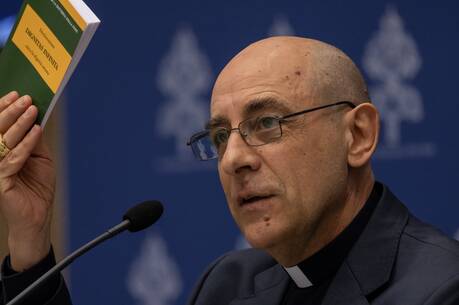Massive overnight snowfalls in New York City usually mean awakening to a preternatural stillness, with city streets silenced for the moment before the plows begin to clear away huge mountains of snow and the noise of midtown traffic returns. The near-blizzard of 2006, the greatest snowstorm recorded in the history of New York City, by contrast, was announced in the early morning hours of Sunday, Feb. 12, by rumbling thunder and a few flashes of lightning. But as the snow continued to fall throughout the morning and into the early afternoon, midtown Manhattan did settle into that rare peace that comes with the suspension of activity.
Since Feb. 12, 2006, also marked my 75th birthday, I wondered if Mother Nature was marking the occasion by sending a symbolic message of sorts: calm down, chill out? Perhaps Vice President Dick Cheney saw a different kind of significance to the great storm that covered most of the Atlantic seaboard. Since media attention in most of the country was preoccupied with the weather, perhaps Mother Nature, in the interests of the national security so often cited by the vice president, was helping to divert attention from his unfortunate shooting accident while quail hunting in Texas. The vice president, we eventually learned, accidentally sprayed one of his companions, a distinguished 78-year old Texas lawyer, with shotgun pellets when the lawyer—in violation of proper quail-hunting protocol—rejoined the group without notice. (When the story did make the national media, we learned that the vice president was hunting without the proper hunting stamp, but this was only a technicality, perhaps to be forgiven “since 9/11 changed everything.”)
My own ruminations during that silent snowy Sunday were undoubtedly more personal than the vice president’s. I reflected on the fact that at the age of 75, I could probably no longer be considered a “promising young man.” I was grateful, once again, for the wonders of contemporary technology that made birthday greetings arrive through cyberspace from places as widely separated as the Philippines, Hungary and Nigeria. Finally, I was pleased that the greatest snowstorm in the history of New York City did not lead to the cancellation of the basketball game that afternoon between Fordham University and the University of Rhode Island held at the Rose Hill gym and broadcast on local television. The fact that the Fordham Rams defeated the Rhode Island Rams in double overtime was a most welcome birthday gift.
The great snowstorm of 2006 was technically not a blizzard in metropolitan New York, since violent winds did not accompany the relentless snowfall, although in other parts of the Northeast authentic blizzard conditions did prevail. Since Feb. 12 was a Sunday, and this time the weathermen were correct in their warnings, the city’s Sanitation Department had time to prepare for the storm, and by Monday morning the life of the city was ready to resume with scarcely a hiccough of interruption. Service on commuter trains into the city was interrupted, which may have given some individuals an opportunity to experiment with telecommuting. No lives were lost in the storm and little property damaged, which deprived New Yorkers of one of their favorite pastimes, bragging to their neighbors about how much they had suffered.
The fact that this winter season leading up to the snows of Feb. 12 had been unusually mild only added to the dramatic impact of the storm’s arrival. There are different seasons of life, of course, and some are stormy and some are mild, but all have their own challenges and rewards. I’m still learning about my particular season of life. Seventy-five, I recognize, is an impressive number that should provide a special perspective on memories of the past and hopes for the future. I’ll wait and see.
For the time being, however, I am pondering the implications of one of the recommendations made by an international gathering of Jesuit superiors last December in Loyola, Spain, to our Jesuit Father General Peter-Hans Kolvenbach (who is planning for his 80th birthday himself). The Loyola assembly recommended that a future general congregation consider issues of governance, collaboration with the laity, community life, formation and identity. Well below the more important global priorities of faith and justice but included nonetheless is the recommendation that the congregation also consider “how to help older Jesuits learn to grow in human affectivity for a better integration into community life.”
I am not sure what that recommendation will lead to for someone like myself, who is 75 going on 17, but I am prepared to take a course in remedial hugging if wiser heads so dictate.







